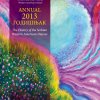Djakonović Pobor Petar 1889 - 1939, Drecun Pobor Stane 1899 - 1978, Pobor Norman 1926 - 1966, Pobor Kartchner Ange 1922 - 1975, Kartchner James 1944 - 1976
PETAR DJAKONOVIĆ POBOR 1889 - 1939
STANE DRECUN POBOR 1899 - 1978
NORMAN POBOR 1926 - 1966
ANGE POBOR KARTCHNER 1922 - 1975
JAMES KARTCHNER 1944 - 1976





